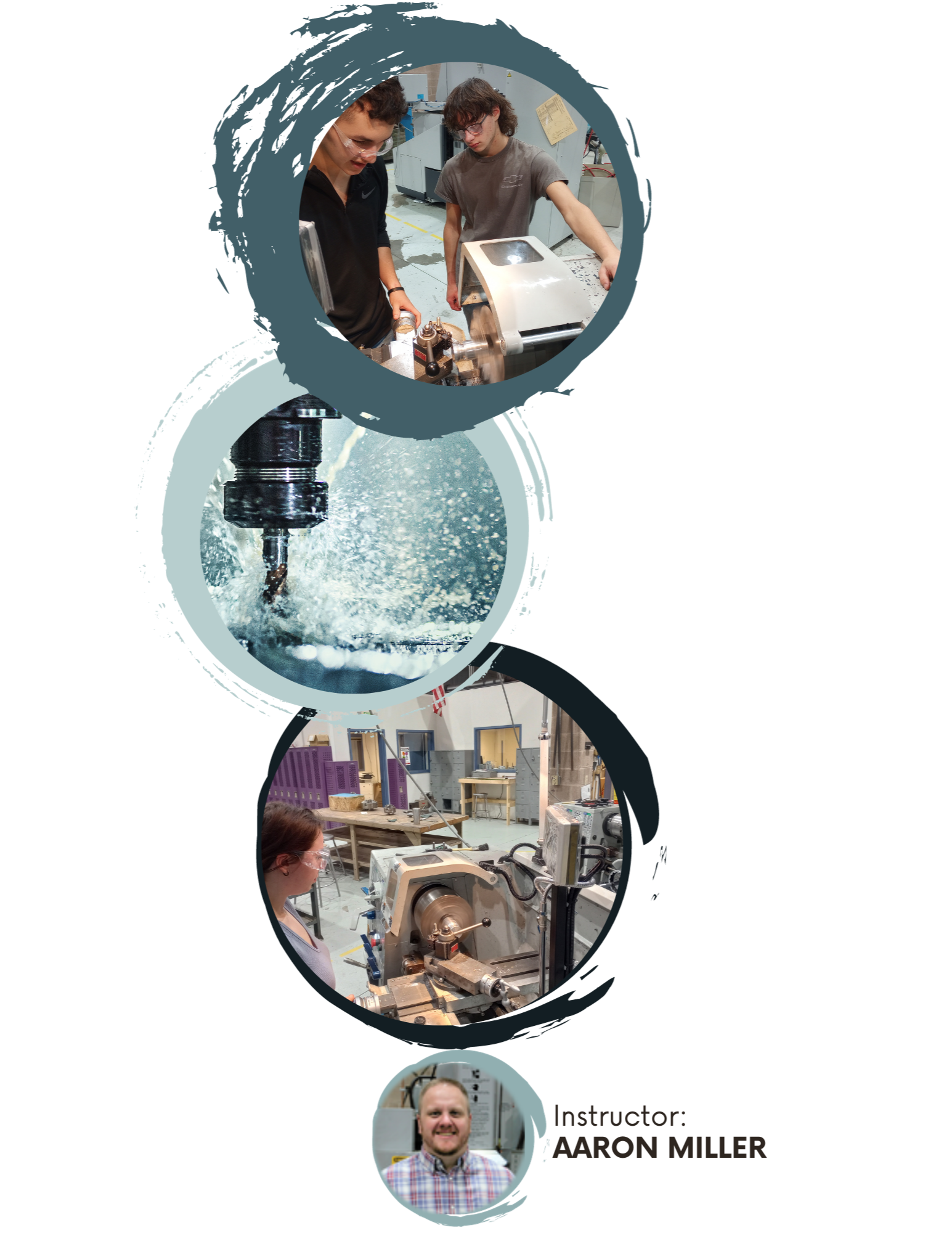
Are you curious about how
products are created?
Precision Machining is the process of designing, making, and maintaining various products, whether cars or furniture, electronics, or food. Throughout the program, students will focus on learning about employment opportunities and obtaining the knowledge, skills, and attitudes essential for success in specific occupations. Classroom instruction and labs will focus on measurement, layout, blueprint reading, shop math, metallurgy, basic hand tools, milling, turning, grinding, and sawing operations. Additionally, students will be introduced to Computerized Numeric Controlled (CNC) setup, operations, and programming in preparation for the high-demand workforce.
Courses
Principles of Precision Machining
Principles of Precision Machining will provide students with a basic understanding of the processes used to produce industrial goods. Classroom instruction and labs will focus on shop safety, measurement, layout, blueprint reading, shop math, metallurgy, basic hand tools, milling, turning, grinding, and sawing operations.
Precision Machining Fundamentals
Precision Machining Fundamentals will build a foundation in conventional milling and turning. Students will be instructed in the classroom on topics of shop safety, theory, industrial terminology, and calculations.
Advanced Precision Machining
Advanced Precision Machining will build upon the Turning and Milling processes learned in Precision Machining Fundamentals and will build a foundation in abrasive process machines. Students will be instructed in the classroom on topics of shop safety, theory, industrial terminology, and calculations associated with abrasives.
Precision Machining Capstone
Precision Machining Capstone is an in-depth study of skills learned in Precision Machining I with a stronger focus on CNC setup/operation/programming. Students will be introduced to two axis CNC lathe programming and three axis CNC milling machine programming.
Principles of Industry 4.0
Principles of Industry 4.0 introduces students to the Industrial Internet of Things (IIoT). Students will explore Industry 4.0 technologies such as artificial intelligence (AI), human-to-robot collaboration, big data, safety, electrical, sensors, digital integration, fluid power, robot operation, measurement, CAD, CNC, additive manufacturing, print reading, and technical mathematics.

